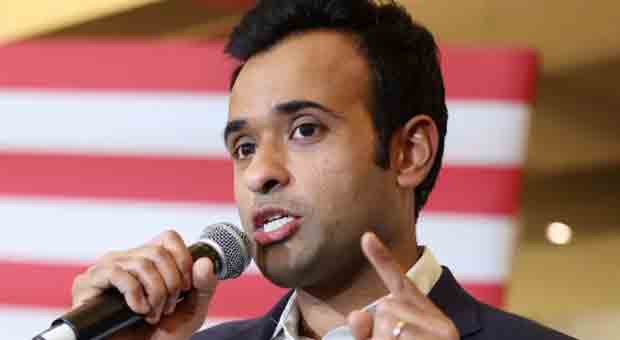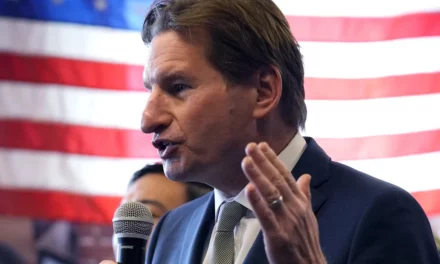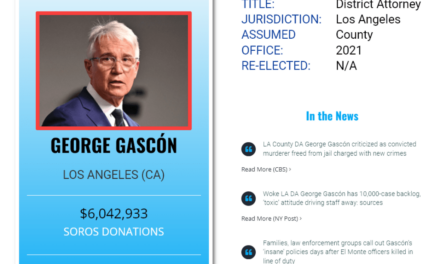We support our Publishers and Content Creators. You can view this story on their website by CLICKING HERE.

Vivek Ramaswamy has unearthed a disturbing elite power grab in Ohio, warning of a plan to take power from statewide elected officials and give it to “unelected bureaucrats.”
“The Great Reset is infecting Ohio,” the former Republican presidential hopeful announced on X.
“They want to take power from statewide elected officials & transfer it to unelected bureaucrats.”
“Even worse, they’ll report you to the government if you dare to talk to them,” he continued.
“If they win in Ohio, it’ll happen nationwide.”
In an op-ed for the New York Post, Ramaswamy said a contentious ballot measure backed by out-of-state interests and dark money is threatening to alter how the state draws its political districts.
He argues that the plan involves transferring redistricting power from elected officials to an appointed 15-member panel, essentially taking away the voice of Ohio voters.
The initiative includes t backers such as former Attorney General Eric Holder and Democratic election attorney Marc Elias.
According to Ramaswamy, financial support for the measures is coming from progressive mega-donors including George Soros and Hansjörg Wyss.
He states that the current system’s redistricting process involves four legislators–two from each party–working alongside three elected state officials – the governor, secretary of state, and auditor.
This system maintains direct voter accountability.
However, the proposed change would be a complex selection process for commissioners, compiled from outside recruitment firms.
The appointees would then choose the remaining nine members, creating a system based on “luck or backroom cronyism.”
“All political power is inherent in the people,” states the Ohio Constitution.
The proposal includes controversial provisions that would protect commissioners from removal except by their fellow panel members.
But the most striking is the measure’s impact on public participation, creating strict limitations on citizen communication with commissioners.
Voters could only provide input through official public meetings or designated online portals.
Ramaswamy warned that the measure has a small 10-day window for legal challenge, further missing citizens’ ability to contest decisions involving issues like racial gerrymandering.
READ: Soros-Backed Group Calls for Trump’s Arrest over ‘Haitian Pet Eating’ Claims

 Conservative
Conservative  Search
Search Trending
Trending Current News
Current News 




